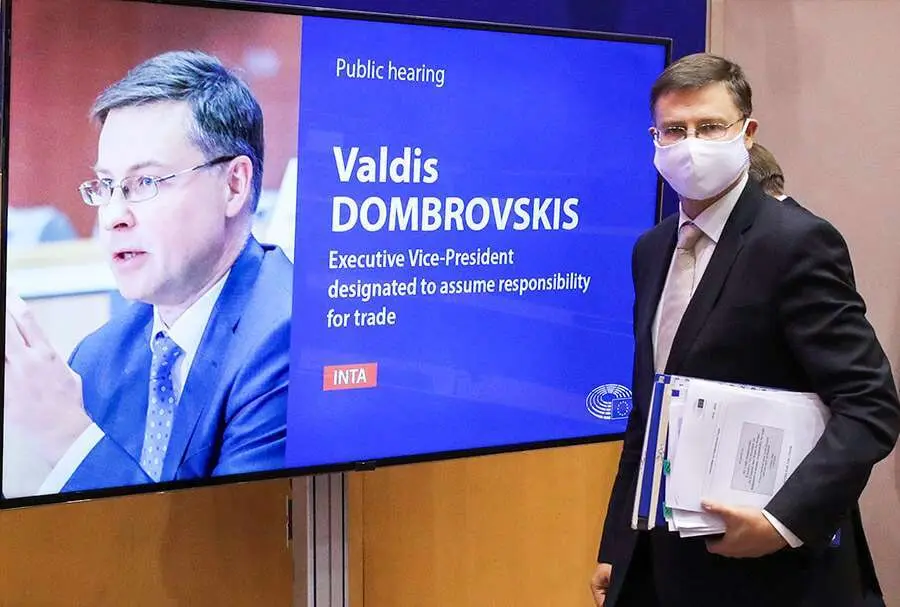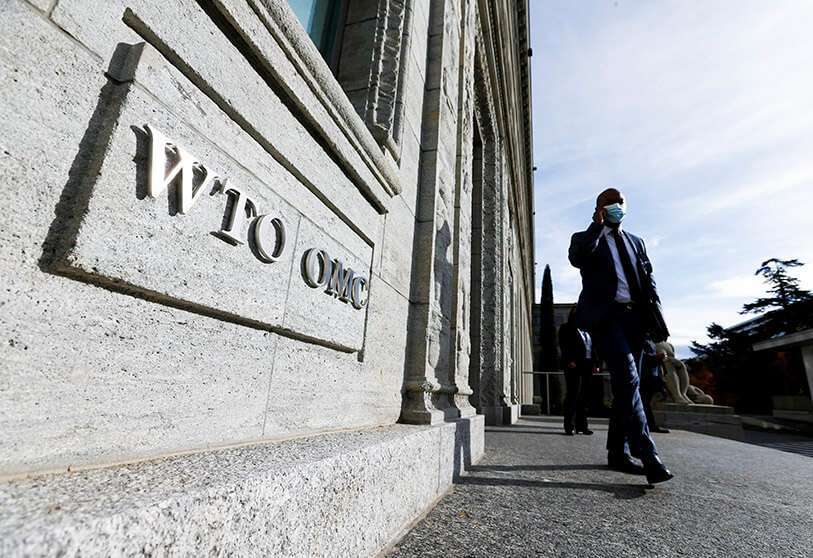EU to impose tariffs on US for illegal aid to Boeing

The European Commission will approve tariffs on imports from the United States in response to the illegal aid that Washington has granted to Boeing, although it will withdraw them "at any time" if there is reciprocity, announced today the vice president of the Community Executive, Valdis Dombrovskis.
The vice president responsible for the economy made this announcement at the start of a video conference meeting in which the 27 will discuss their trade relations with Washington following the victory of Democrat Joe Biden in the U.S. elections.
"The United States has imposed its tariffs following the World Trade Organization ruling in the Airbus case and now we have a WTO ruling in the Boeing case allowing us to impose tariffs and this is what we are doing," Dombriovskis said, although he did not quantify the amount of the sanctions or when they will take effect.
However, the commissioner assured that the EU is willing to "withdraw" these tariffs "at any time, when the United States suspends its tariffs".
The WTO recently ruled that the EU has the right to impose tariffs of up to 4 billion dollars (some 3,369 million euros) on US imports for its illegal aid to the aeronautical giant Boeing.
Previously, it had already allowed Washington to levy tariffs of up to $7.5 billion (some 6.316 billion euros) for the EU's illegal subsidies to Airbus, which led it to punish imports such as olive oil, table olives or wine.
The German economy minister, Peter Altmeier, also assured that the EU is ready to impose these sanctions: "For a year now we have been living as the United States has imposed sanctions and it was clear that this also meant that Europe was going to react," he said, assuring that the EC will inform the trade ministers today of its preparations.
Countries like Spain, which have seen their exports damaged by US tariffs, have already asked the Commission to be firm if the US does not withdraw them.
The list of Spanish products affected includes olive oil, wine, olives, cheeses, pork sausages, juices, liquors, mollusks and canned fruits.
The ministers will also discuss today trade relations with China and in particular, progress in the negotiations of an investment treaty that both parties have been seeking since 2014.
The goal remains to try to close it before the end of the year, although Dombrovskis insisted today that Beijing must show "significant" progress

The resolution allows for additional tariffs on U.S. imports worth up to $4 billion annually
The Dispute Settlement Body of the World Trade Organization (WTO) formally authorized last Monday, October 26th, the European Union (EU) to apply sanctions to the trade of goods and services from the United States for a value of 4 billion dollars a year due to the illegal subsidies that this country granted to the aeronautical manufacturer Boeing.
This new resolution is one more chapter in the long dispute of more than 15 years between the EU and the US within the WTO regarding state subsidies received by the two largest aircraft manufacturers in the world: the European Airbus and its US rival Boeing.
The multilateral body ruled in October 2019 that the aid granted by the countries that make up the European consortium (Germany, Spain, France and the United Kingdom) to Airbus was incompatible with international trade rules. Therefore, it authorized the United States to impose countermeasures through additional tariffs on European products worth up to $ 7.5 billion.
The increase in tariffs mainly affected exports of airplanes and different agricultural goods produced by the countries of the consortium and has seriously affected the evolution of sales of Spanish products such as olive oil, wine, olives or cheese in the US market during the last months.
After postponing its decision due to the expansion of the coronavirus pandemic, the WTO resolved on October 13th of this year the arbitration for the Boeing case, ruling in favor of the EU and authorizing the imposition of tariffs on US exports, but it was on October 26th that this resolution was formalized after having the approval of the 164 members of the trade body.








